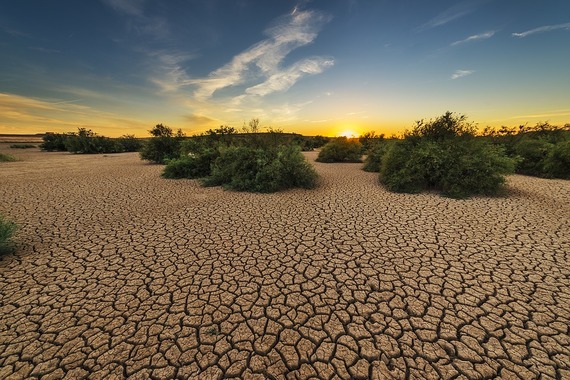Earlier this month the Paris Agreement on climate change came into force. When it was negotiated last December, delegates at the Conference of the Parties (COP 21) cheered, celebrations which were echoed by many around the globe. A year later, COP 22 in Marrakech is drawing to a close. The event aims to build on the pact of limiting global average temperature increase to less than 2°C, and accelerate ambition if possible to 1.5°C.
These are exciting times in the effort to halt the effects of global warming. However, a note of caution needs to be struck. The recent UNEP Emissions Gap report estimates we are actually on track for global warming of up to 3.4°C. Much greater action is needed, and quickly. Ten of the warmest recorded years have occurred since 2000, and 2016 is now almost certain to be the warmest year ever.
It is vital that progress on limiting emissions of carbon dioxide and short-lived climate pollutants, such as methane and black carbon, is monitored. Governments must be held accountable for meeting their nationally determined contributions towards global cuts in emissions, and incentivised to go further.
Climate change poses major threats to human health but policies to reduce emissions have great potential to improve health in the near-term, including by reducing air pollution and encouraging dietary changes. A new international initiative aims to provide more crucial information on the relationship between climate change and health.
Launched this week, The Lancet Countdown: Tracking Progress Health and Climate Change is a multidisciplinary collaboration between a range of scientists and practitioners. It will track and report annually on five key sets of markers that reflect progress and setbacks on health and climate change:
-the health effects of climate hazards
-health resilience and adaptation
-the health co-benefits of mitigation
-economics and finance
-political and broader engagement
Measuring these markers will be challenging. In its first publication, the Lancet Countdown consults on potential indicators that could be used. Feedback and suggestions from the scientific community, policymakers and civil society on the validity and utility of the proposed indicators will inform the final selection.
Some proposed indicators, such as exposure to extreme heat can be measured in a wide range of settings. Others, such as changes in the distribution and incidence of climate sensitive infectious diseases may only be monitored in a limited number of 'sentinel sites'.
In some cases, the initiative can draw on work undertaken for monitoring the indicators for the Sustainable Development Goals. Other proposed indicators will assess whether there are sufficient investments in the transition to the low carbon economy necessary to achieve and exceed the Paris Agreement commitments. Collating evidence on changes in public understanding of health and climate change will also be key.
Statements at COP22, and subsequent annual conferences, will be scrutinised for mention of health and climate change to check whether this vital issue is widely recognised in the global community. About three million deaths annually are linked to exposure to outdoor (ambient) air pollution. Over 90% of the world's population lives in places where air quality levels exceed WHO limits.
CO2 and short-lived climate pollutants from sources such as road transport and coal burning, responsible for the bulk of ambient air pollution in the first place, are also leading causes of climate change. Monitoring air pollution and estimating near-term health and economic co-benefits from reducing these emissions add to the impetus for action.
Donald Trump's election to the US Presidency heralds a more challenging era for policies to address climate change. How will we hold governments to account for actions that will profoundly influence global health, now and in the future? Rigorous data collection and communication of trends to decision makers, and the public worldwide, will be of paramount importance.
